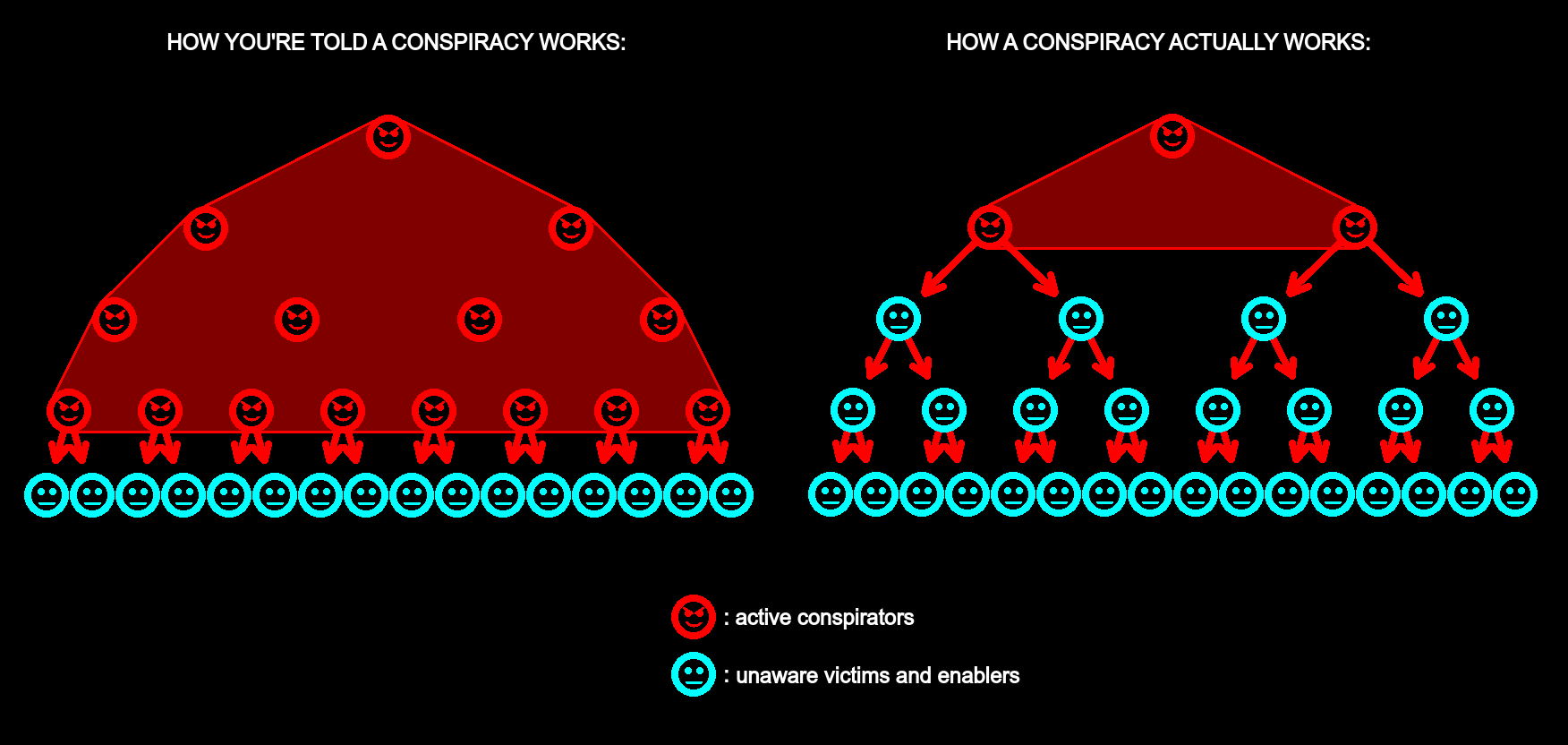Mass Conspiracy Argument
The Mass Conspiracy argument is a fallacious argument frequently invoked (often indirectly) by conspiracy denialists in an attempt to give a rational-sounding basis to their ideology.
The argument states that conspiracies are impossible because it would be impossible to keep such a huge number of involved people silent about it for such a long period of time.
This argument is fatally flawed on at least three levels:
False premise
The whole argument is implicitly based on the false premise (which also serves as a strawman) that a conspiracy necessarily requires a huge number of actively conspiring people in order to work as intended; more specifically that everyone who is in any way involved in a conspiracy is also aware of the conspiracy going on and willingly collaborating with it.
This premise completely ignores 2 trivially obvious facts:
1) The hierarchical and highly specialized structure of society, i.e.: the fact that virtually every aspect of our society is arranged in a top-down pyramidal way consisting of a handful of individual directing a big group of people (a minister over a whole institution; a CEO over its whole company, etc.); in this model the latter are just mere executors of orders coming from above and have no requirement to know what the true purpose of an order is in order to execute it.
2) The power of information and deception in shaping the thoughts and actions of huge masses of people, especially when such power in the hands of highly visible and trusted people.
These facts guarantee that only a handful of conspirators belonging to a very high level in the social hierarchy, or strategically placed in key positions of power are often more than sufficient to manipulate a great number of completely oblivious people towards a specific goal, in the same way a bunch of nerve cells are enough to move whole body parts.
False conclusion
The argument does not actually prove what initially claims, i.e.: that conspirations are "impossible"; even if we were to accept its (false) premises, it would at best only prove that a conspiration cannot be kept completely secret for a indefined period of time, which is clearly not the same as claiming they're "impossible".
In fact, not only it is perfectly possible for an elite to engage in a conspiration even at high odds of secrets being leaked to the public, but often they do not even need to keep them secret at all, since there is a vast array of very effective tactics to deal with those leaks making them harmless to the conspirators, including denial, use of scapegoats, partial admissions, shifting the focus to other issues, but most importantly of all, the social shunning of the very idea of conspiracy, which is what the ideology of Conspiracy Denialism is entirely about.
Begging the question
The conclusions are flatly refuted by the effective existence of leaks and whistleblowers, something which would be impossible according to the argument.
The only way denialists can deal with these facts is to deny their existence or autenticity by means of the Mass Conspiracy Argument itself, i.e.: by circularly using the conclusion as a premise, which is a clear logical fallacy.

The real dynamic of a conspiracy.
